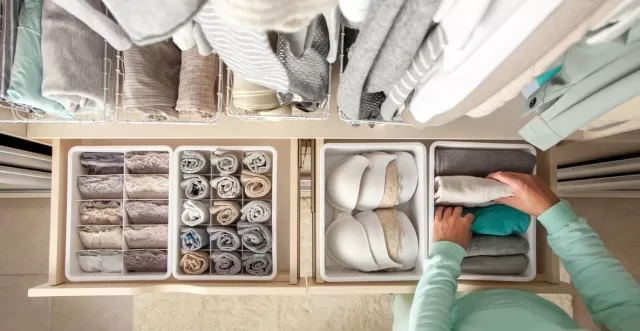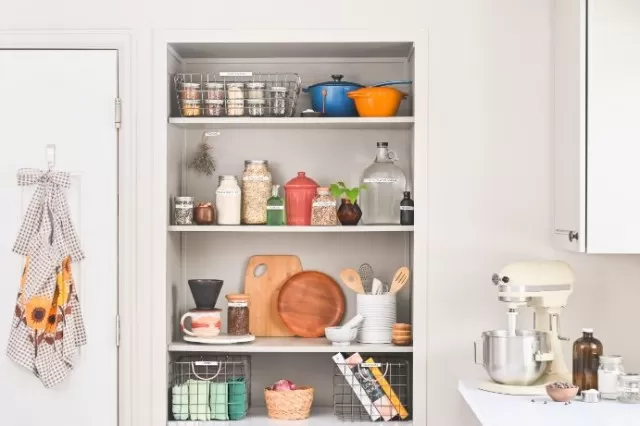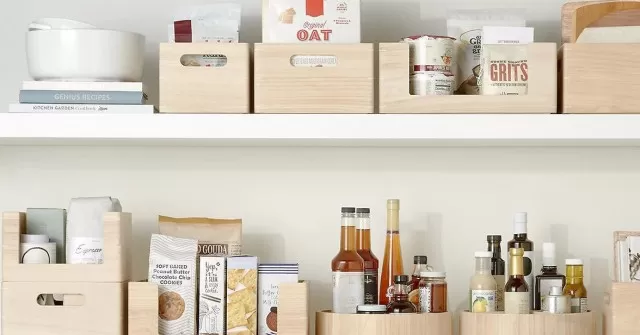Even if you don’t rent a storage unit, clutter still comes at a cost within your own home. Storing unused items takes up valuable space.

Are you guilty of holding onto items you don’t need, convincing yourself that you might use them someday? Many people fall into this trap, believing that keeping unused items will somehow save them money in the long run.
However, the reality is that clutter is a financial burden that can drain your resources. Statistics indicate that Americans spend a staggering $38 billion each year on self-storage units alone.
Just imagine the amount of money being spent on storing items that are simply sitting idle.
Even if you don’t rent a storage unit, clutter still comes at a cost within your own home.
Storing unused items takes up valuable space and can cost you approximately $10 per square foot. This cost varies depending on your monthly rent or mortgage payments, which can be divided by the square footage of your home to calculate the expense of your space per square foot.
When you factor in the cost of housing your belongings, the financial impact of clutter becomes evident.
Not only does clutter have a monetary cost, but it also consumes your precious time.
On average, Americans spend multiple days each year searching for misplaced items. This leads to spending additional money on replacing items simply because they can’t be found.
A survey revealed that U. S. households collectively spend a staggering 2. 7 billion dollars annually on replacing lost items.
By decluttering your home and getting rid of unnecessary belongings, you can save thousands of dollars each year, regain valuable time, and even reduce the stress and anxiety that clutter can bring.
It’s important to recognize that holding onto unused items has a significant financial impact.
By taking steps to declutter your living space, you can free yourself from the burden of unnecessary expenses, save time, and create a more organized and stress-free environment.
How to Begin Decluttering and save money in the Process

If you’re eager to declutter your home and start saving money, it’s important to know where to start and how to approach the task effectively.
Decluttering can be overwhelming, but with the right techniques, you can transform your living space into a clutter-free haven that brings you joy.
One popular method for decluttering is the KonMari method developed by tidying expert Marie Kondo.
In her book, “The Life-Changing Magic of Tidying Up,” and the accompanying Netflix series, Kondo teaches a category-based approach rather than organizing room by room. Instead of tackling individual rooms with scattered items, gather all items of the same type and create a single pile.
This method allows you to see the sheer volume of each category, such as clothes, books, or kitchen appliances. The visual impact of a towering pile of clothes you rarely wear helps you discern what you truly need and what can be let go of.
When decluttering, it’s important to resist the temptation of buying storage solutions prematurely.
Wait until you have a clear idea of how much stuff you’re keeping before investing in organizational items. It’s also crucial to consider your budget for organizing the items you choose to keep.
Look for the best deals on storage products, including dollar stores, to avoid unnecessary spending that could counteract your decluttering efforts.

Transforming your clutter into cash is an excellent way to reduce mess and expenses simultaneously.
Once you’ve identified items for donation or disposal, determine which ones are worth selling. While you can attempt to sell everything, low-value items may not fetch much interest.
In those cases, it’s more practical to donate or recycle them. The goal is to part with unwanted items promptly, so they no longer occupy valuable space or drain your finances.
Fortunately, numerous online platforms like ThredUp, Poshmark, eBay, Facebook Marketplace, and Craigslist provide convenient avenues for selling unwanted items. Conducting a quick Google search to gauge the value of specific brands and products can guide you in pricing them appropriately.
If you’re looking for a fast way to declutter and make money, hosting a yard sale is an effective option.
This allows you to sell multiple items in a single day, and anything that doesn’t sell can be promptly donated. This strategy helps prevent the temptation of reintroducing unsold items back into your home.
Decluttering doesn’t just save you money on storage costs; it also prevents the need to replace lost or misplaced items.
By keeping your belongings organized, you’ll avoid misplacing important bills and documents, which can result in costly late fees. Designate a dedicated space for your bills to ensure you always know where they are and when they are due.

Remember that decluttering takes time and transitioning to a more organized lifestyle is a process.
Stay motivated and focused on your decluttering goals by exploring different organizational ideas. Create a Pinterest board for inspiration or print a vision board to make the decluttering journey more enjoyable.
It may sound cheesy, but visual motivation can have a significant impact, helping you envision your ideal home and kick-start the necessary decluttering efforts.
By following these tips and approaches, you’ll not only declutter your living space but also save money in various stealthy ways, from reducing storage costs to avoiding late fees.
Take your time, stay organized, and enjoy the transformation as you create a clutter-free and cost-efficient home.
*The information is for reference only.